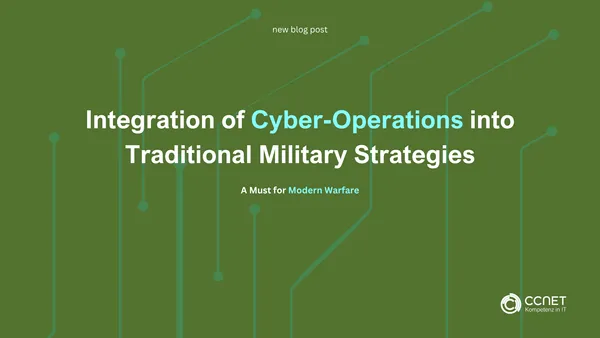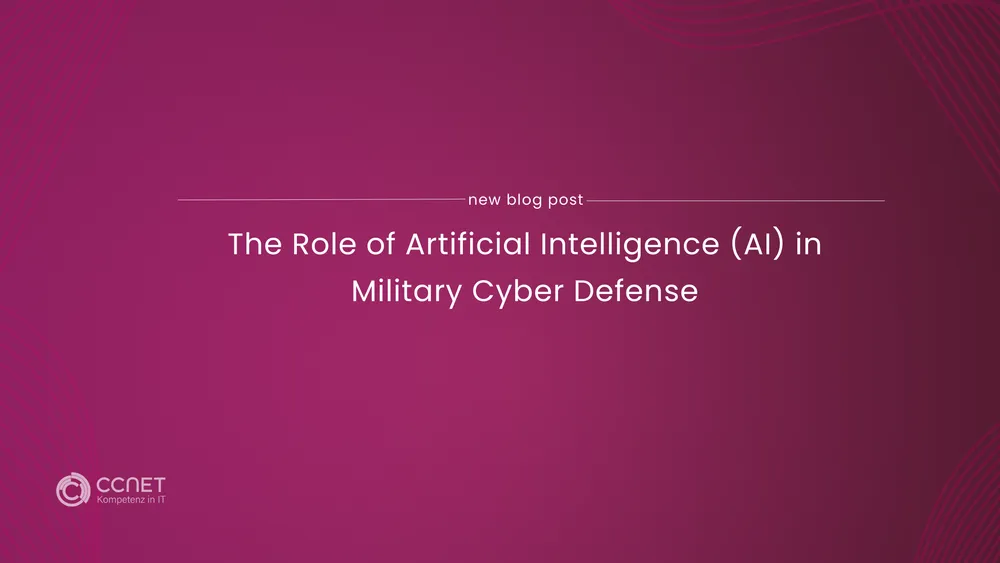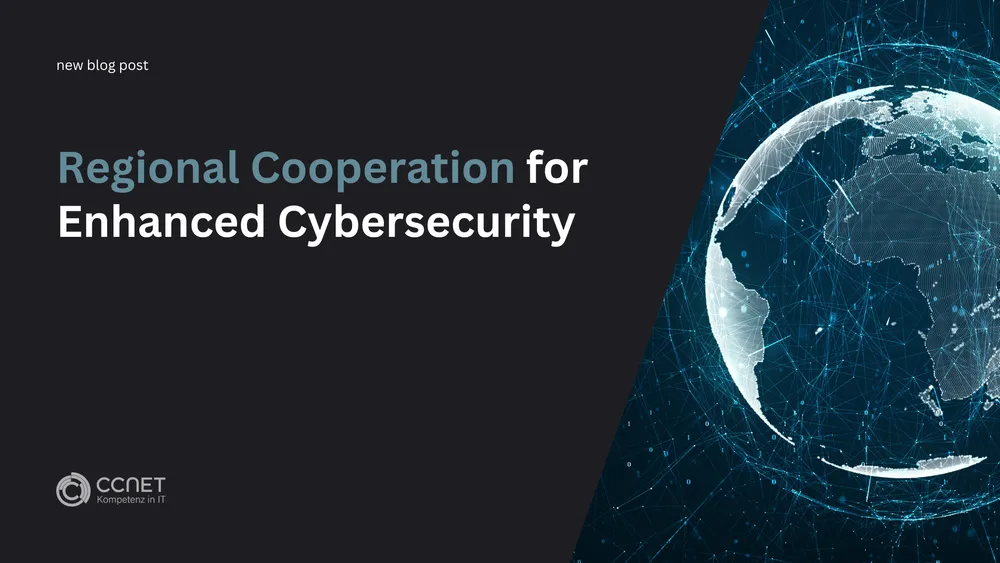
CCNet
Feb 17, 2025 • 3 min read

Integrating cyber operations into traditional military strategies: a must for modern warfare
With the increasing digital connectivity, cyber operations have become a key element in modern military strategies. The ability to seamlessly integrate cyber operations into traditional military actions is essential for addressing contemporary threats and maximizing the effectiveness of military operations. This blog post explores the importance and challenges of integrating cyber operations into traditional military strategies, offering insights into best practices for successful integration.
The Role of Cyber Operations in Modern Warfare
Cyber operations have evolved from a supportive element to a core component of military strategy. They play a critical role in the preparation and execution of military operations by disrupting enemy communication, crippling critical infrastructure, and ensuring information superiority. In many modern conflicts, cyber operations are the first phase of an attack, paving the way for conventional military actions.
Cyber operations offer unique advantages not found in traditional military strategies. They allow for the disruption or destabilization of adversaries from a distance, without the need to deploy physical troops. This can lead to significant strategic advantages, particularly when it comes to gaining control over information flows and communication networks. Through cyber operations, military forces can greatly enhance their ability to monitor and control the battlefield situation, providing them with a decisive advantage over their opponents.
Challenges of Integrating Cyber Operations
Despite the obvious benefits, there are significant challenges when integrating cyber operations into traditional military strategies. One of the biggest challenges lies in the different nature of cyber operations compared to conventional military actions. While conventional operations often focus on physical targets and clear rules of engagement, cyber operations are often more complex and require a deep understanding of digital infrastructure, as well as the ability to operate in a dynamic and often invisible environment.
Another challenge is the coordination between cyber operations and traditional military units. In many cases, cyber units operate in isolated environments, making coordination with other military units difficult. This can lead to delays, misunderstandings, and ineffective operations. The challenge is to ensure that cyber operations are coordinated in real-time with conventional military actions to maximize efficiency.
The integration also requires adjustments to military doctrines and training programs. Traditional military doctrines are often insufficient to address the unique aspects of cyber operations. Therefore, it is necessary to develop new doctrines that recognize cyber operations as an integral part of military strategy. These doctrines should provide guidelines for planning, executing, and evaluating cyber operations in combination with traditional military actions.
Strategies for Successful Integration of Cyber Operations
To successfully integrate cyber operations into traditional military strategies, several approaches are needed:
-
Development of Integrated Doctrines: Military organizations must develop new doctrines that clearly define the role of cyber operations in the overall strategy. These doctrines should include specific instructions on how to coordinate cyber operations with conventional units, ensuring that cyber capabilities are considered in all phases of military operations.
-
Training and Education: Training military personnel at all levels is crucial to ensure they understand the importance of cyber operations and are capable of using them effectively. This includes training cyber specialists as well as traditional military units on how to handle cyber threats and collaborate with cyber units.
-
Deployment of Real-Time Coordination Technologies: Integrating cyber operations requires technologies that enable real-time coordination between various units. These technologies should ensure that cyber and conventional operations are synchronized and mutually supportive.
-
Development of Scenarios and Exercises: Military organizations should regularly develop scenarios and conduct exercises that simulate the integration of cyber operations into traditional military strategies. These exercises help test interoperability, identify weaknesses, and assess the effectiveness of integration.
Future Perspectives on Cyber Integration in Military Strategies
As digitalization advances and the significance of cyberspace in military conflicts grows, the integration of cyber operations into traditional military strategies will continue to increase in importance. States that can effectively implement this integration will have a significant strategic advantage in future conflicts. Continually adapting military strategies and doctrines to evolving cyber threats and technologies will be key to maintaining this advantage.
Conclusion
The integration of cyber operations into traditional military strategies is essential for modern warfare. By combining the capabilities and resources of both domains, military organizations can significantly enhance their effectiveness and better respond to the complex threats of the 21st century. Despite the challenges, successful integration of cyber operations offers substantial strategic advantages that can significantly influence the outcome of conflicts.


